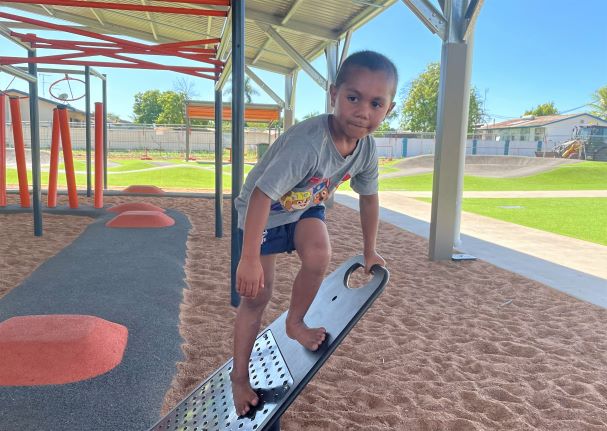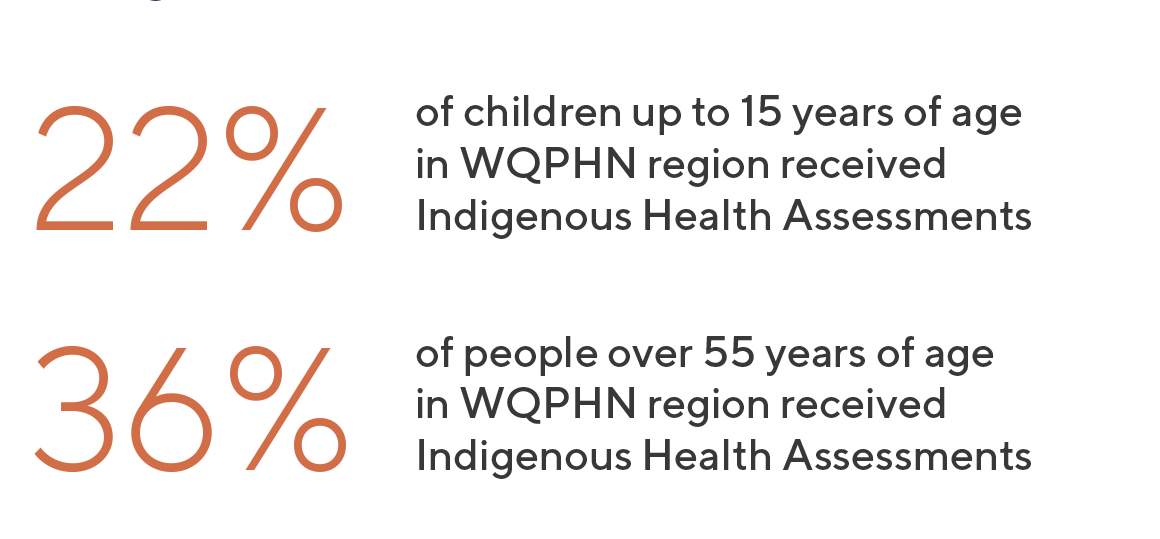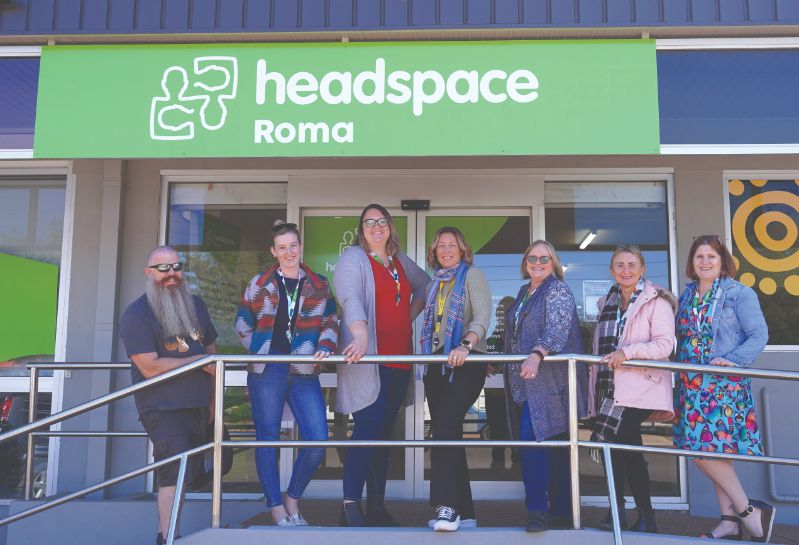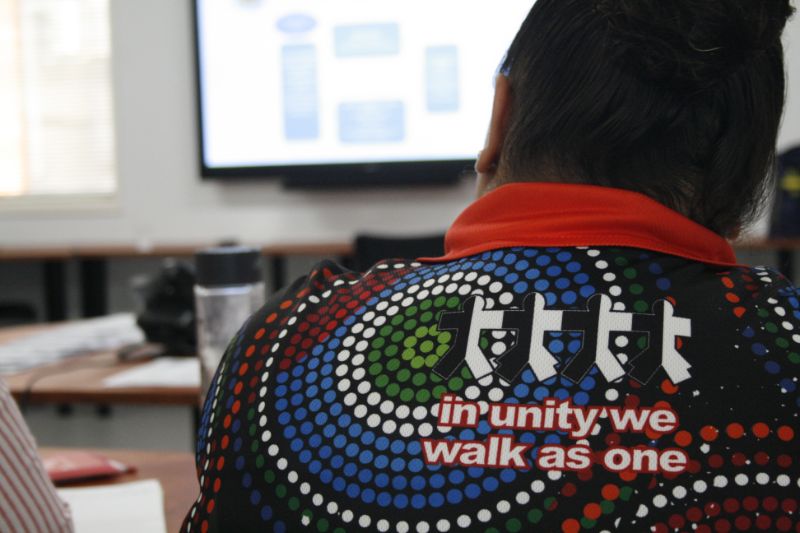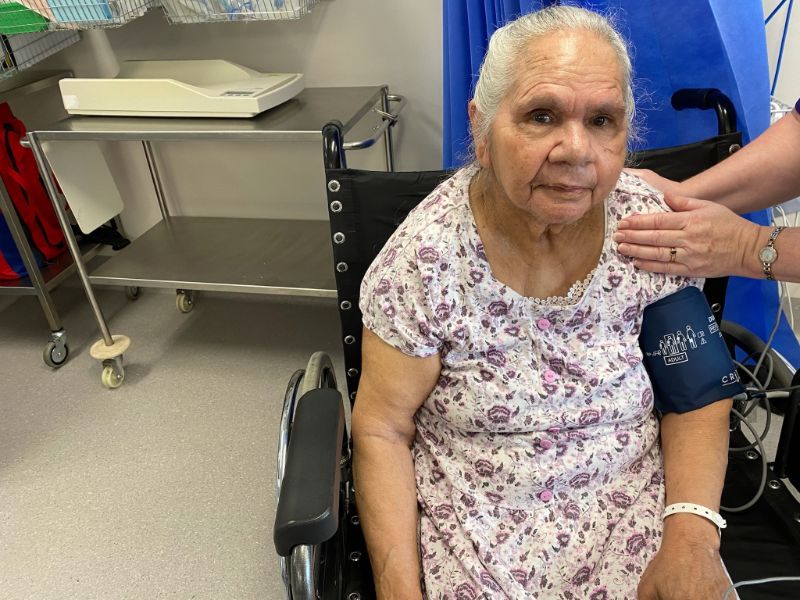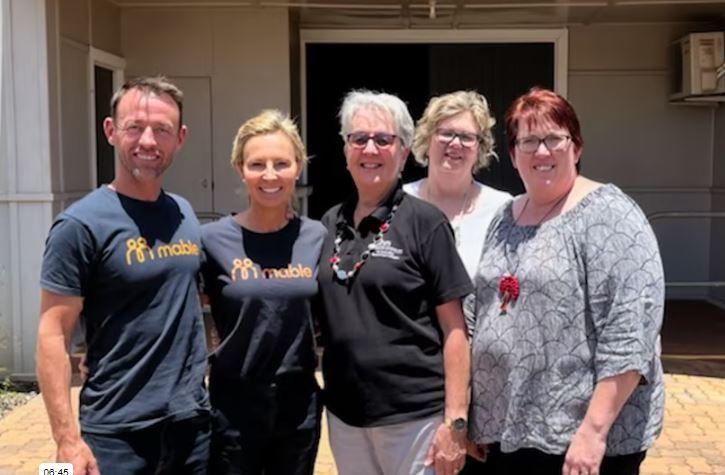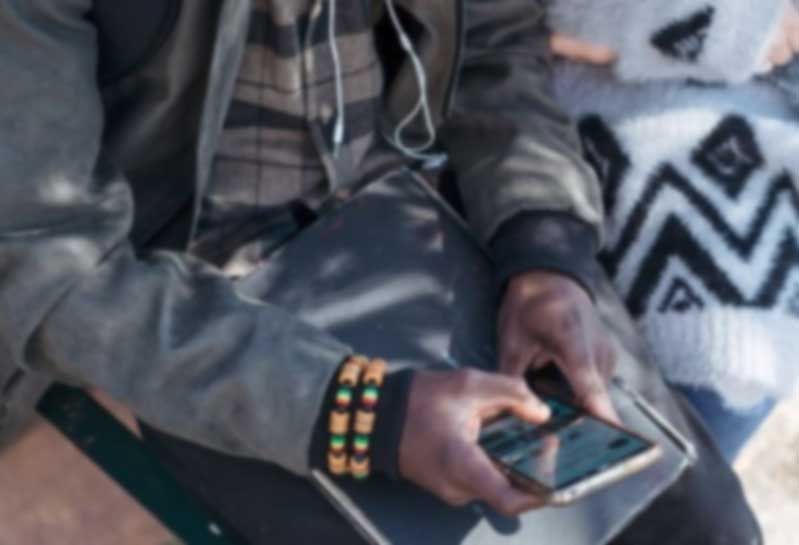Strategy 5: Child & Family Health
Welcome to the WQPHN 2021-2022 Annual Report Highlights. For a printable version of the report, please click here.
Healthy Outback Kids focuses on the first 3,000 days of life and pre-natal milestones for Mums.
The program centers around the introduction of regular child health visits and scheduled health checks around critical development milestones and was established in collaboration with the Central Western Aboriginal and Torres Strait Islander Community Health (CWAATSICH), Cunnamulla Aboriginal Corporation for Health (CACH) and the South West Hospital and Health Service (SWHHS).
- All children are enrolled with a general practice;
- Care for each child is scheduled as per the health checks in the Healthy Outback Kids Program;
- Care is delivered by a multidisciplinary team including a General Practitioner, Registered Child Health Nurse, Aboriginal Health Practitioner and Aboriginal Community Workers;
- Service providers share information to ensure all families are offered care program outcomes.
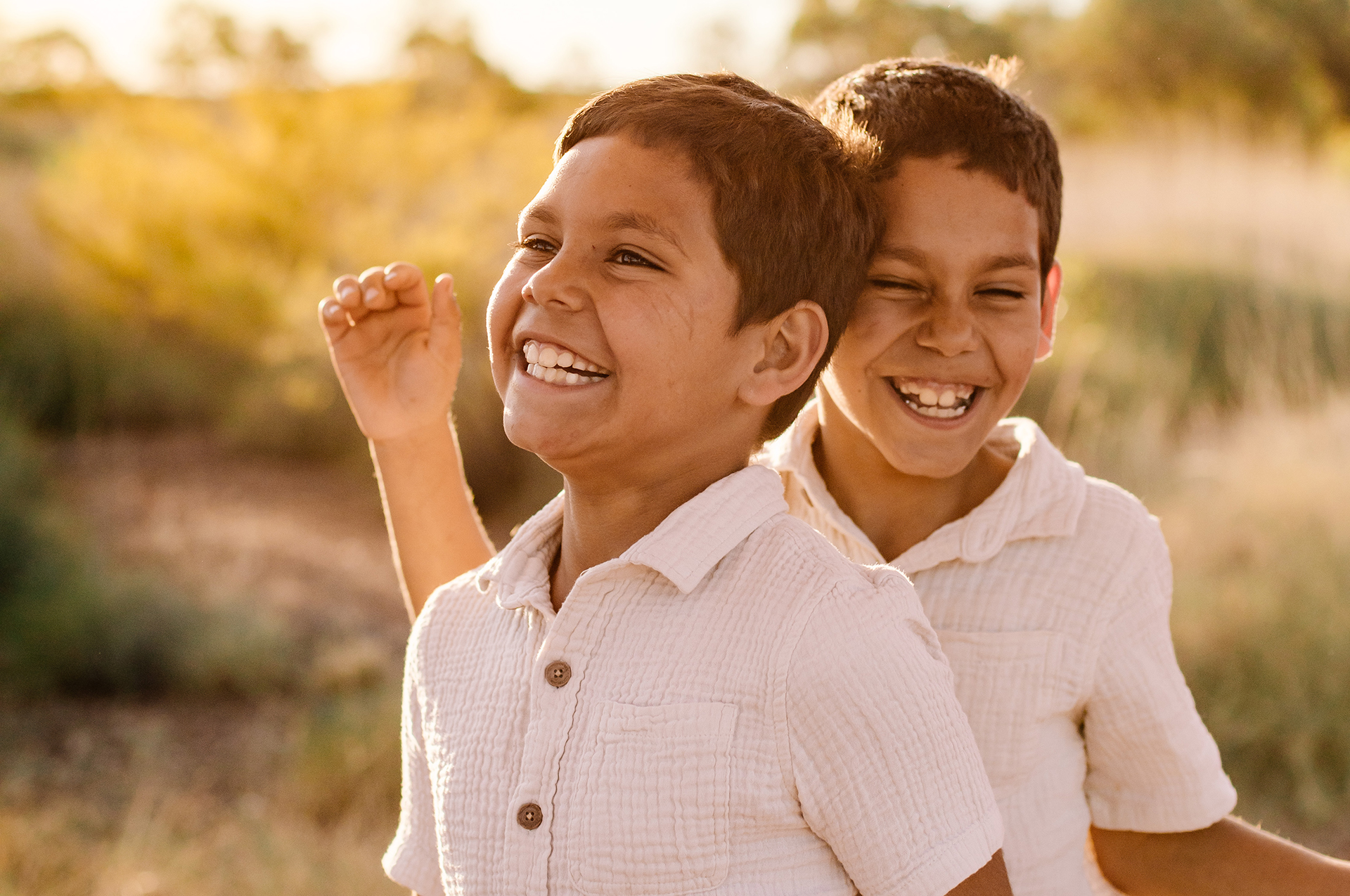
Big Buddy Program
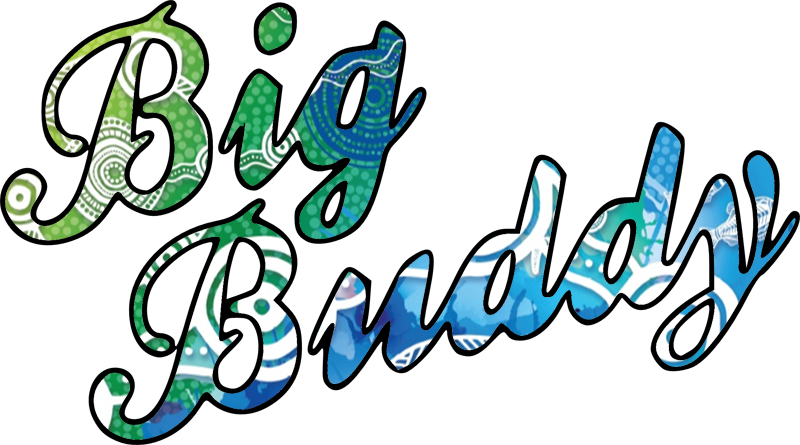
Goondir Health Services continues to deliver The Big Buddy Program on the founded aims to address the four key objectives of:
- Social inclusion
- Mentorship
- Promoting Life Skills
- Education
Goondir’s St George Wellbeing Centre provides the fit for all staff and participants to engage and interact with each other in a number of various activities and well being programs. Stakeholders and other service providers are also encouraged to utilise the Centre teaching young children and youth about product development, ideation and innovation using a fun and interactive activities.
Some highlights over the past 12 months has been the:
- Engagement of “Country University” providing the Big Buddy participants with an opportunity promoting further education and career options and how utilise the facility to further their education experience.
- Through the partnership with “Australian Defence Force (ADF)” recruitment and promotional drive in St George with a number of Big Buddy participants actively participating in a number activities and information sessions on offer within the ADF.
- Health and Wellbeing Queensland providing promotional days and sessions on the importance of staying healthy, eating healthy, promoting exercise, physical activity and fitness.
- Traditional games continue to build self esteem and confidence across all program areas within the local community and encourages all participants the opportunity to build strong networks within the Big Buddy Program.
Goondir Health Services staff are looking forward to the next year with many more innovative activities and programs to enhance the local community.
BUSH Kids
BUSHkids is a not-for-profit organisation which has been supporting the health and wellbeing of children and families with children aged to 13 years in Queensland’s regional, rural and remote communities for over 80 years.
They provide free preventative and early intervention allied healthcare (directly and in collaboration with government & non-government organisations) to children and families who are unable to access services locally due to unavailability or affordability issues.
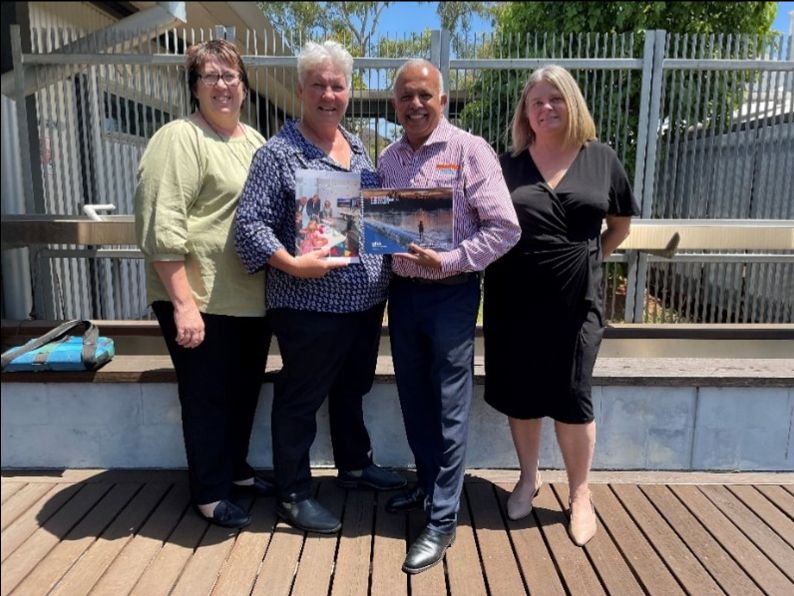
The BUSHkids team have prioritised support for the holistic development of children transitioning and working from early childhood to Prep in 2023 throughout the WQPHN funded areas. The team continues to build the capacity of Early Years staff to enhance learning opportunities through play, by designing/using activities that support a child’s play as well as their development in line with needs identified through observations in the learning environment.
BUSHkids have been able to build on the work delivered in 2021, by offering ongoing support to the children who previously attended the Mums and Bubs group. Families and their children who are now attending kindergarten have engaged through telehealth support either at home or through the kindy with the support of Hannah the centre co-ordinator.
Working well over the past 12 months:
- Good engagement strategies when working with children and educators;
- Clinicians (OT and Speech) have been able to identify children requiring support once screened with consent gained;
- Feedback from families provided noticing improvements with their children and happy with their child’s development;
- Good foundation of trust and relationships built with staff and educators across all communities;
- Staff and families are receptive to sharing of information from clinicians.
Thuaaka team in Mornington Island
Thuaaka (pronounced ‘thu-ga-ga’) is the name of a small bird that inhabits Mornington Island. In our local Lardil language, thuaaka means ‘happy families bird’. Often encountered in family groups, the thuaaka is a very happy and social bird. Given the importance of addressing the health and wellbeing of our children and young people within a family-centred context, we have adopted the ‘happy families bird’ as a symbol of our broader vision.
The Thuaaka team is a locally-based health and family support workforce established by the Mornington Island Health Council, with support from the WQPHN. The goal is to support the accessibility of health services by children and their families on Mornington Island, to support the achievement of optimal health, development and wellbeing.
The Mornington Health Council believes that the health of our children and young people is intrinsically linked to the health of their family and their home environment, for this reason the Thuaaka team works to ensure child and family health services are responsive and adopt a holistic, family-centred approach, drawing on the strengths of local Aboriginal and Torres Strait Islander cultural knowledge and practices.
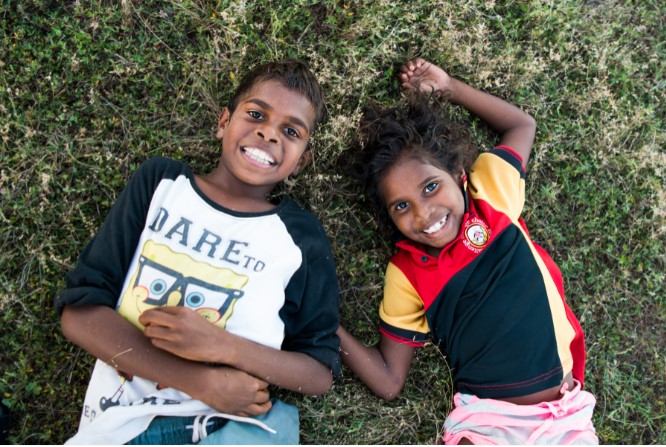
The Thuaaka team continues to work with families and other stakeholders within Mornington Island to:
- Actively encourage universal screening and assessment to help families identify and manage health issues earlier;
- Provide Care coordination and case management for vulnerable children and their families;
- Enhance access and engagement with primary health care services; and improve access to other secondary services including education, housing, employment, family violence prevention, and other support services.
How this is done by the team?
- Embed cultural competence throughout all aspects of our work which will lead to more effective health service delivery and better health outcomes for children, young people and their families;
- Support service providers and families to build trusting relationships;
- Improve access, attendance and engagement between community and health and social services;
- Increase access to home-visiting and community-based care;
- Improve continuity of care for children, young people and their families;
- Work with services to improve the effectiveness of health and social services.
Indigenous Health Assessments 2021-22
Our Stories...
headspace Roma celebrated their first birthday on Wednesday May 4, 2022, with local crew and staff enjoying the celebrations, which included a great BBQ, cake, art workshops, games and a chill out zone.
Chronic diseases are long-lasting, and while most are preventable and treatable, they cause approximately 64% of the disease burden among Aboriginal and Torres Strait Islander Peoples and approximately 80% of the mortality gap.
The steady achievers in 2021/22 have once again been the committed staff working in residential and community aged care.
Nearly 23 per cent of homes in Western Queensland have no access to the internet - we need to invest in the digital infrastructure to support access to telehealth, online supports, and community, aged care and disability services.
WQPHN collaborated with Mable to visit regional communities throughout Western Queensland to discuss options for community-led aged care services and provide workforce solutions for rural and remote areas.
WQPHN has commissioned headspace National to provide the Wellbeing in Schools Early Intervention Telepsychiatry program (WiSE).
Credits
The WQPHN website was developed and is maintained by Michael R.G. Hughes of Extremely Geeky.
Disclaimer
While the Australian Government Department of Health has contributed to the funding of this website, the information on this website does not necessarily reflect the views of the Australian Government and is not advice that is provided, or information that is endorsed, by the Australian Government. The Australian Government is not responsible in negligence or otherwise for any injury, loss or damage however arising from the use of or the reliance on the information provided on this website.
